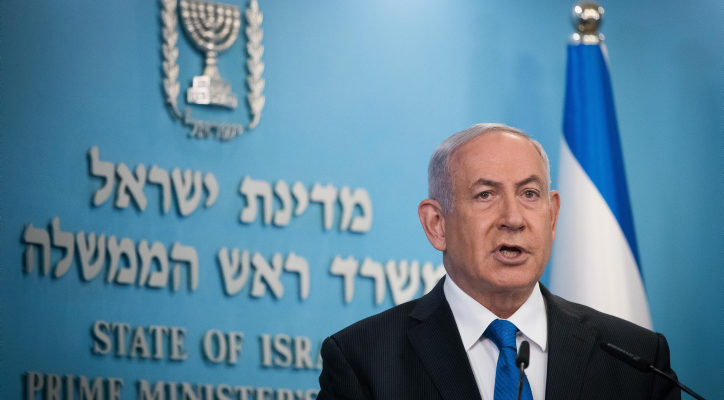Opinion: Such weak spin coming from a leader of Netanyahu’s caliber rang false even in the ears of his most faithful supporters.
By David Isaac, World Israel News
“Today we usher in a new era of peace between Israel and the Arab world,” Prime Minister Benjamin Netanyahu announced on Thursday, revealing diplomatic relations would be opened between Israel and the United Arab Emirates.
Israelis were thrilled at the news. Their fondest wish, in contradiction to the calumny hurled at them by the haters, is peace between themselves and their Arab neighbors.
While we, too, bless the news along with nearly all Israelis, one comment by the prime minister rang false.
Netanyahu said that unlike the other two formal agreements Israel has made with Arab countries, this one is qualitatively different – it is “peace for peace.”
While it is an improvement over the Egypt-Israel peace treaty, in which Israel gave up 23,000 square miles of Sinai, and the Jordan-Israel ‘nonbelligerency’ agreement (signed after Jordan was enticed to the table with a U.S. promise that its debts would be forgiven), we’ve still not arrived at “peace for peace,” as the prime minister says.
“Peace for no sovereignty,” would be more accurate. The ‘land for peace’ formula still hovers over the agreement.
The prime minister, fielding questions at the presser to announce the breakthrough, insisted that sovereignty hadn’t been taken off the table. He even denied it had been delayed. He said only that he’d agreed to a personal request from the president of the United States to put the idea on temporary hold. Such weak spin coming from a leader of Netanyahu’s caliber rang false even in the ears of his most faithful supporters.
It also became apparent that it didn’t square with reality. President Donald Trump had a very different idea of what Israel had agreed to, saying that sovereignty over parts of Judea and Samaria and the Jordan Valley was “off the table.”
“Israel has agreed not to do it. More than off the table, they have agreed not to do it,” Trump said during Thursday’s White House press conference.
U.S. Ambassador to Israel David Friedman, also at the briefing, tempered the president’s words, saying Israel agreed to “suspend” sovereignty.
“The word ‘suspend’ was chosen carefully by all the parties,” Friedman told reporters. “Suspend, by definition, look it up, means temporary halt. It’s off the table now, but it’s not off the table permanently.”
Whether it’s permanent or temporary, and we hope temporary, “peace for peace” does not mean foreign countries get to make demands which are frankly not their concern. Judea and Samaria is Israel’s by right on more levels than can be enumerated here, and whether Israel applies sovereignty certainly shouldn’t be left up to the UAE. What are we to expect if Israel one day goes ahead with sovereignty? Will the UAE recall its ambassador and that will be the end of it?
The decision may come back to haunt Netanyahu next elections. Sovereignty was supported across the board by his party and by his base, some of whom will surely abandon him for parties to his right.
Yossi Dagan, head of the Samaria Regional Council, described the prime minister’s abandonment of his sovereignty pledge as “twisting a knife in the back.”
“When Netanyahu comes to after the compliments from the Left, he will find himself again slandered and he will try to look to his base. It’s not certain that he will find them there,” he warned.
Channel 11’s Carmel Dangor, reporting from Samaria on Thursday, said people residing in the settlements said, “Netanyahu abandoned us, sold us out, defrauded us, betrayed his voting public.”
Netanyahu may be the most talented politician Israel has produced. He may very well find a way to win back those of his supporters who are now disillusioned.
Still, their reaction demonstrates it wasn’t “peace for peace.”





